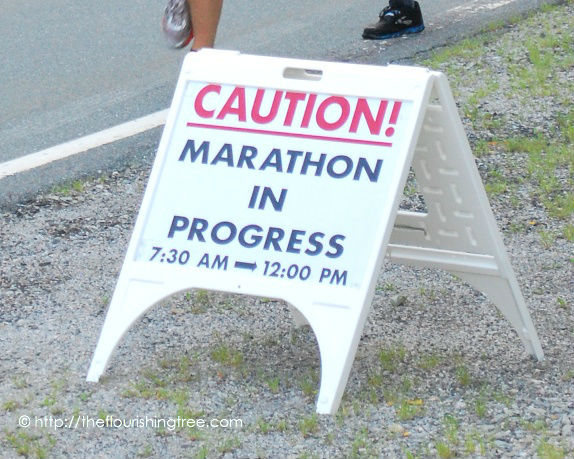Time is flying by, and I can’t believe we’ve already reached week six in the tree signs series. You have to look closely at this week’s sign to see its full message:
I love the equals sign here, but its presence also made it harder to find just the right Bible verses. Verses about peace abound, as do ones about kindness. But equating peace with kindness? Those verses are rarer. A passage in Romans 12 comes pretty close:
If possible, so far as it depends on you, be at peace with all men. Never take your own revenge, beloved, but leave room for the wrath of God, for it is written, “Vengeance is mine, I will repay,” says the Lord. “But if your enemy is hungry, feed him, and if he is thirsty, give him a drink; for in so doing you will heap burning coals on his head.” Do not be overcome by evil, but overcome evil with good. – Romans 12:18-21
Does this admonition to be at peace with everyone make you uncomfortable? What about that part about giving your enemy something to eat or drink?
I love the concepts of peace and kindness but often fall short in the actual practice of them, especially when it comes to people I fear or do not like. I’ll admit it: Being at peace with a vague “all men” seems easier to accomplish than giving my own personal enemy something as life sustaining and as simple as a glass of water.
Is it part of the human condition to want revenge? We want villains to suffer as their victims did. We want evil masterminds to die at the end of the movie (and in real life). We want some sort of street justice for the neighborhood jerk who lets his ferocious dogs terrorize children and adults alike. We don’t want to give water and food and kindness to such as these. We don’t want to wait for God’s vengeance (perhaps because we can’t believe it will be as severe as we’d like). We want to heap the coals on our enemies but not by practicing acts of kindness toward them. We want to heap coals by leaving them thirsty and hungry and in pain.
Yet we know stories of those who heap proverbial coals by extending kindness instead of hatred. We are surprised when grieving families of shooting victims stand up in court and speak forgiveness to the killer. And when gruff people show a tender heart for someone in need. And when undreamt of reconciliations happen in our own families. It shocks us to see kindness where we would expect apathy or rejection or cruelty.
The Syrian refugee crisis is front and center in the news, and perhaps like me, you’ve experienced shock at Hungary’s refusal to help and relief that Germany has flung open its gates and greeted the refugees’ trains with kindness. If my neighborhood were to become a border town for refugees pouring in, I hope I would be more like Germany than Hungary, and I hope it wouldn’t take the photo of a dead toddler to get me to find new ways to tap into the depths of sacrificial kindness.
Too often, though, we seek our own safety and comfort instead of extending an inconvenient kindness to one another. We hope others will step up to help so that we only have to pay lip service to the sort of radical kindness some tragedies require of us.
Romans 12 doesn’t leave much room for negotiation, though. Radical kindness is how we are meant to interact with those around us. “So far as it depends on you, be at peace with all men.” Being at peace means a willingness to be kind when it’s undeserved. And being kind can bring about peace where there otherwise would continue to be animosity.
How would our world look if we all acted on these verses and actively tried to be at peace with all humans? How would our world change if we let go of our desire for revenge and instead practiced kindness? Have you experienced a kindness that led to peace? What about a peace that led to kindness? I’d love to hear the ways you’ve experienced peace = kindness in your own lives.









